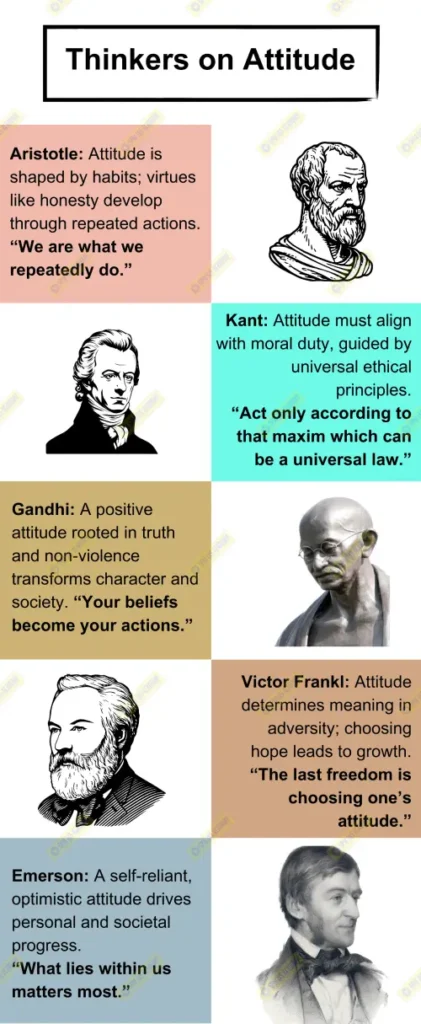It is true that our behavior reflects our attitude, as attitudes form the underlying framework that influences how we perceive, interpret, and respond to situations. A positive attitude drives ethical, constructive behavior, while a negative attitude can lead to indifference, hostility, or even unethical actions. As William James, the father of modern psychology, stated, “The greatest discovery of any generation is that a human being can alter his life by altering his attitudes.” This idea underscores how our internal mindset directly impacts our external behavior.
How Behavior Reflects Attitude
1. Positive Attitude Leading to Constructive Behavior
A person with a growth mindset, as advocated by Dr. Carol Dweck, views challenges as opportunities, which is often reflected in their persistence and proactive behavior. For example, Abraham Lincoln’s unyielding attitude toward justice and equality shaped his behavior as a leader who abolished slavery.
2. Negative Attitude Influencing Harmful Behavior
Mahatma Gandhi emphasized the impact of negative attitudes, stating, “Anger and intolerance are the enemies of correct understanding.” For instance, prejudice or rigid ideologies often result in discriminatory or destructive behavior, as seen in historical and contemporary instances of systemic injustice.
3. Attitude Determines Reaction to Adversity
A resilient attitude is often reflected in calm and constructive behavior during crises. For example, Nelson Mandela’s attitude of forgiveness and reconciliation after years of imprisonment defined his behavior as a leader committed to unity in post-apartheid South Africa.
4. Behavior as a Reflection of Ethical Attitudes
Ethical attitudes like empathy and compassion often manifest in altruistic behavior. Mother Teresa, driven by her attitude of unconditional love and service, devoted her life to caring for the sick and the marginalized.
Ways Our Attitude Gets Shaped
1. Family and Upbringing
Our early experiences with family deeply influence our attitudes. A nurturing environment fosters empathy, integrity, and compassion, laying the groundwork for ethical behavior. For example, a child raised in a family emphasizing mutual respect is more likely to develop an inclusive outlook.
2. Education and Learning
Education opens minds to new perspectives, shaping attitudes toward tolerance, diversity, and critical thinking. As John Dewey emphasized, education isn’t just about knowledge but also about fostering the ability to reason ethically and make fair decisions.
3. Personal Experiences
Life events, whether joyful or challenging, shape our attitudes over time. For instance, overcoming adversity often builds resilience and a positive outlook, while repeated disappointments may lead to distrust or pessimism. These experiences teach us the value of perseverance and humility.
4. Social and Peer Interactions
Our attitudes are often influenced by the people we surround ourselves with. Positive relationships encourage trust and cooperation, while toxic environments can foster cynicism or defensiveness. As Aristotle said, “Man is a social animal,” and our interactions profoundly shape who we are.
5. Cultural and Media Influence
Cultural norms and media narratives play a powerful role in defining our attitudes. Exposure to stories of kindness, justice, or activism can inspire positive attitudes, while negative stereotypes or biased portrayals may reinforce prejudices.
Our behavior is, indeed, a reflection of our attitude, shaped by a blend of family, education, experiences, and societal influences. As Dalai Lama reminds us, “A positive attitude is the foundation of happiness.” Cultivating values like empathy, fairness, and resilience not only enhances our attitudes but also ensures that our behavior contributes to a more ethical and harmonious world.













